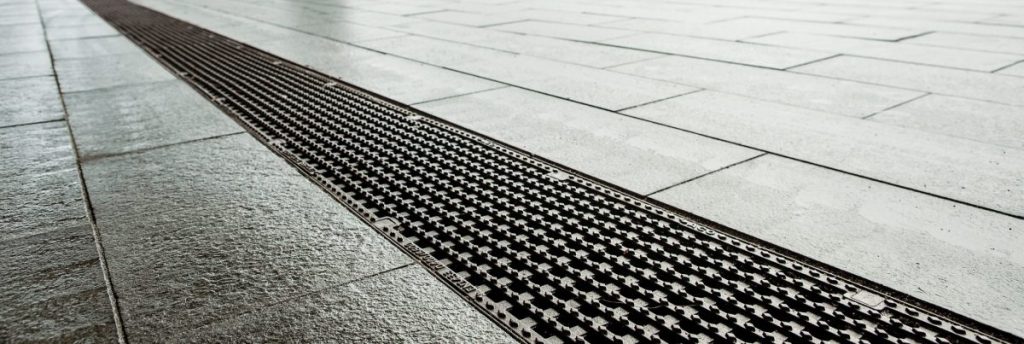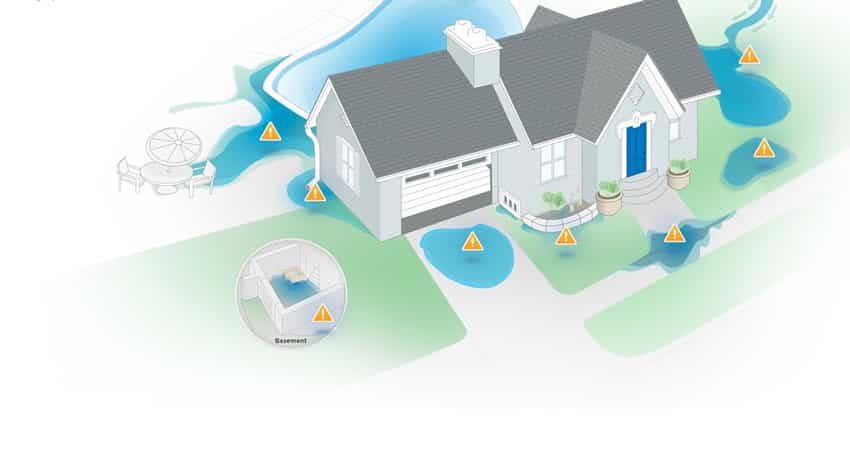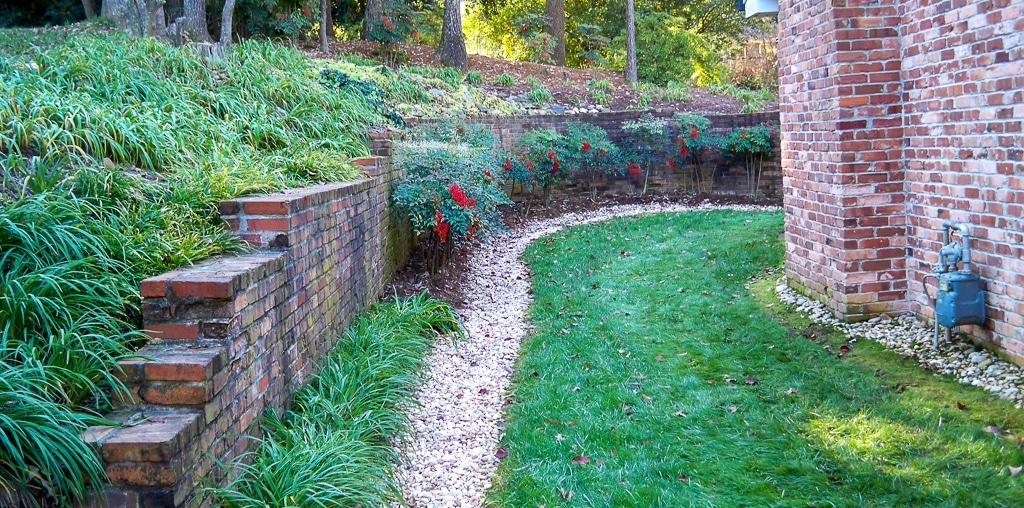Oasis Landscapes & Irrigation understands the importance of an effective sloped yard drainage solutions. We can implement effective water drainage solutions for your landscape as soon as you see signs of improper drainage in your landscape.
Drainage problems often start small. A puddle or two in the basement or standing water in the yard after a rainstorm may not seem like a big deal. However, water build-up may get worse over time. Left unchecked, improper drainage makes your landscape less attractive and less usable. It can also cause significant damage to softscapes, hardscapes, and even the foundation of your home.
You’ll prevent those problems and save a small fortune on repairs if you address those drainage problems before they escalate.
A well-designed drainage system saves property owners a lot of headaches. Sloped yards often have issues with poor drainage, and sloped yard drainage issues can prove to be big trouble for homes and commercial properties alike.
Drainage issues often start small. A puddle or two in the basement or standing water in the yard after a rainstorm may not seem like a big deal. However, water build-up may get worse over time.
Left unchecked, improper drainage makes your landscape less attractive and less usable. It can also cause significant damage to softscapes, hardscapes, and even the foundation of your home.
You’ll prevent those problems and save a small fortune on repairs if you address those drainage problems before they escalate.
Oasis Landscapes & Irrigation understands the importance of effective yard drainage solutions. We can implement specialized water drainage solutions for your landscape as soon as you see the signs.

Georgia’s famous red clay means there is a lot of need for drainage solutions in the Atlanta area. Clay soil forms tight layers that hold onto water.
Additionally, the constant and ongoing construction in our area plays a role. Heavy equipment compacts the clay soil, removing air pockets that allow for drainage. If your home or business is new construction, you may notice standing water on your property after a heavy rain.
Concerned your yard may need a more effective drainage solution? Here are other common signs that indicate you have a drainage problem:
When everything is working properly, topsoil should stay in place. If there’s a problem, silt, gravel, or mulch gets carried away in visible sheets of rain and deposited elsewhere.
It’s normal for foundations to develop small cracks due to geological shifting and the house settling. However, more significant gaps—anything greater than a quarter of an inch—should be addressed.
Water stains left on walls and by windows suggest possible sources of infiltration and grading problems. They can also indicate clogged or missing window well drains.
The attic may seem like an odd place to look for drainage problems. Moisture from the basement or ground floor can rise to the top of a building. There, it will condense on the attic ceiling, leading to the growth of mold or mildew.
Downspouts should divert water at least five feet away from the foundation. Depending on the slope of the land around your house, and local building codes, they may need to extend even further.
A dull white or gray crust on your basement walls is a mineral deposit left behind when water evaporates.
Clogged gutters cause water to spill over the edge. They may also spray at the elbow joints, preventing water from flowing out of the bottom of the downspout.

If you see any of the aforementioned signs around your home or business, it’s time to act. The first step is determining the root cause of the problem so you can address the situation head-on. It may be an easy remedy!
You can often solve basement water damage problems by installing a sump pump or having the basement waterproofed. To prevent water build-up around your foundation, attach rain barrels or diverters to your downspouts.
If your gutters are overflowing, you may just need to clear out the leaves that are clogging the downspout. Or you can adjust the gutter to be angled appropriately. If that doesn’t help, you might need to purchase new gutters.
Of course, if you’ve tried taking these “subtle measures” and you still have problems, your best bet is to call a professional to help you with your landscape drainage.

The team at Oasis Landscapes & Irrigation can assess your Atlanta yard drainage problems. Further, we can suggest repairs and a type of drainage system that suits your drainage needs.
A berm is a mound of soil that acts as a yard drain by blocking and redirecting excess water.
This wide, sloped area of lawn can help redirect the flow of water away from your home.
Lined with large, rounded river rocks, a dry creek bed redirects and drains water runoff to help prevent flooding and erosion.
Rain gardens feature plants that tolerate standing water, beautifying boggy areas while absorbing surface water.
This system consists of catch basins and trench drains to direct moving water.
Grading or putting in a retaining wall may also help. We can easily take care of these things for you.
Above all, Oasis wants to help you avoid severe landscape and property damage. We will design and implement a dependable yard drainage solution that will protect your property for a lifetime.
If you notice any signs of yard drainage problems in your Atlanta landscape, just contact us to schedule a free estimate. We will turn your water nightmares into drainage solutions.